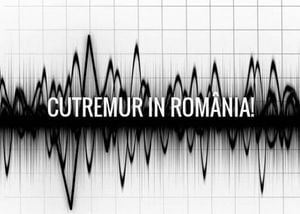Eiza González, the talented Mexican actress known for her roles in films like Ambulance and series like Netflix's 3 Body Problem, opened up about her profound struggle with grief following her father's tragic death. During an appearance on the March 26 episode of Penn Badgley's podcast Podcrushed, González shared her emotional journey after her father, Carlos González, died in a motorcycle accident just ten days after her 12th birthday.
In a candid conversation, the 35-year-old actress revealed how she faced immense difficulty processing her emotions in the years following her father's passing. "I was just in complete and utter denial," she reflected. "I just completely removed myself from my father, like, I just couldn't." This emotional detachment stemmed from the shock and unfairness she felt regarding his death. "He cared about people so much. And I just couldn't connect, the unfairness of him dying. I just was like, [of] all the f---ing s---ty people in the world, him?" she expressed, highlighting the deep sense of injustice she felt.
González's struggle with grief was compounded by her family's devout Christian faith. "It made me not believe in anything bigger. ... I lost faith completely," she admitted, illustrating the internal conflict she faced during this challenging time. For four to five years, she found it nearly impossible to cry, indicating a profound emotional numbness. "I didn't cry at all. I was just in complete and utter denial. And, simultaneously, I started my career, and I needed to cry a lot for work," she noted, revealing the irony of her situation as she began her acting career.
González's journey in acting began in 2007 with the Mexican telenovela Lola, érase una vez when she was just 16. She quickly rose to fame in various Mexican series before making her mark in the U.S. with English-language films such as Almost Thirty in 2014 and Baby Driver in 2017. Despite her success, the emotional scars from her father's death lingered.
In her conversation with Badgley, González reflected on how her father's passing created a void in her life. "Something died in me and I just completely removed myself from my father. Like, I just couldn't," she said, emphasizing the unbearable nature of her grief. However, she also acknowledged that this loss inadvertently opened new avenues for personal growth and self-discovery. "It helped me develop a better relationship with my mother, whom I described as the breadwinner in the house," she explained.
González's mother played a pivotal role in helping her navigate through the pain. "My mom in some very profound way says that life has a reason for that, and there was a reason why those 12 years of my life were completely devoted to him because I was never gonna have him again. And then she was gonna have me for the rest of life," González recounted, showcasing the strength of her mother's perspective on their shared grief.
Throughout the years, González eventually found her own path to reconnecting with her father. "Then I had my own personal sort of reconnection with him, and it really took me years," she revealed, hinting at a gradual healing process that allowed her to integrate her father's memory into her life.
As she promotes her latest film, Ash, which is currently in theaters, González's story serves as a poignant reminder of the complexities of grief and the resilience of the human spirit. Her openness about her struggles resonates with many who have faced similar losses, providing a sense of solidarity and understanding.
In sharing her experiences, González not only sheds light on her personal journey but also highlights the broader theme of coping with loss in a way that is both relatable and inspiring. Her narrative encourages others to confront their emotions and find ways to honor the memories of loved ones lost.
As the conversation on the Podcrushed podcast continues to circulate, listeners are reminded of the importance of vulnerability and the healing power of sharing one’s story. Eiza González's journey is a testament to the idea that while grief can feel isolating, it is also a universal experience that can lead to growth, understanding, and ultimately, hope.





